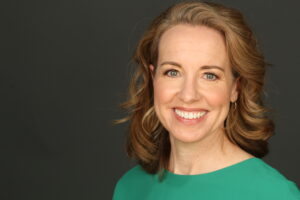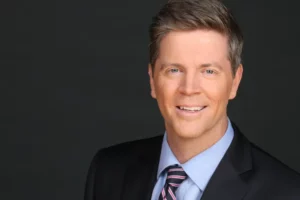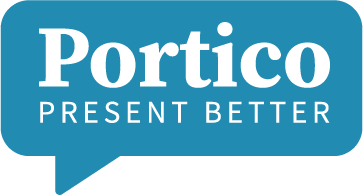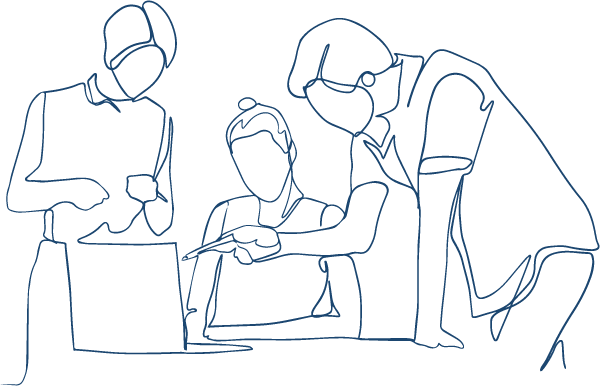Why Portico?
Since our founding in 2013, we’ve grown from a one-person consultancy to a team with expertise in storytelling, speaking, presentation design, leadership development, and messaging.
We recruit team members grounded in the central purpose of understanding clients’ needs and tailoring programs so that presentations deliver the results they seek.
Our coaches and facilitators have been on all sides of the presentation equation – as speakers who struggle, as corporate executives who aren’t getting what they need from meetings and updates, and now as facilitators and coaches working across a wide variety of industries.
Facilitators and coaches transform speakers because of our experience and our approach.
We get to know your business, working with leaders to define and set expectations. Multiple touch-points with speakers and their managers can make the difference between a thought-provoking workshop and transformational, lasting change. Our courses are highly immersive and focused on the kinds of presentations you give and meetings you run so that each speaker knows they can apply new approaches and techniques.
Our experience shapes the values that guide our work:
CANDOR
Have the courage to talk about what’s working and what’s not.
DIVERSITY
Encourage a range of voices and viewpoints.
KINDNESS
Meet speakers where they are, building them up to develop their strengths.
TRANSPARENCY
Interact with honesty and clarity.
Take the next step
If you’re interested in learning about how we might work together, send us a message and we’ll set up a time to talk.
WHAT’S IN A NAME?
A portico, by definition, offers protection from the elements over an entrance. Our work with speakers creates a space to organize your ideas before gatekeeping moments in your career.
Meet the Portico Team

Meghan Dotter
Founder + CEO
One of my greatest joys is helping people convey their ideas and connect. Throughout my career I realized that sub-par presentations were missed opportunities, and that creating them is often inefficient, if not frustrating. I founded Portico to make it easier to build and deliver great presentations so that ideas and careers can move forward.
My communications career began in New York with the Ruder Finn Group. In order to learn more about business drivers behind PR, I joined AES Corp, a global Fortune 200 company as head of external communications, where I earned the nickname “the engineer whisperer.” I’ve worked with clients to launch business lines, advocate for issues and manage crises.
My formal education includes an M.A. in Latin American Studies form the University of California, San Diego and a B.S. in Foreign Service from Georgetown University. I’m an avid reader (and podcast listener) and regularly share favorite reads and recommendations.

Lane Ryan
Facilitator + Coach
I love the Albert Einstein quote: “Everything should be made as simple as possible, but no simpler.” It elegantly captures the balance required in storytelling with data. As someone who is a self-described PowerPoint disciple – yes, if I had to send my grandma a birthday card, I’d build it in PowerPoint – I love the chance to teach others how to weave a story vice fill out painfully monotonous slides.
In one way or another, I have been in communication my whole career, whether it be running research teams across the globe, building web-based dashboards or developing faculty members to deliver leadership development courses. I actually become a verb; colleagues ask me to “Lane-ify” their presentations.
My education includes a B.S.B.A. from Georgetown University, majoring in Finance and International Business with a minor in Psychology. I also hold an MBA from George Washington University and completed studies at Oxford University in business strategy and global finance. When not building the perfect slide deck, I’m most likely reading an article on behavioral economics or shuttling a family member to a sports practice.

Stephy Hogan
Lead Designer
I used to be a total design snob until I was thrust into the world of presentation design. Ever since, I’ve been passionately evangelizing the field in an attempt to elevate the industry as high as its other design counterparts. I am also a web developer and believe that user experience isn’t limited to the internet and its principles apply just as strongly to presentations.
I’ve been a designer in marketing and communications for a variety of places from small non-profits to Fortune 500 companies since 2002. I am a founding board member of the Presentation Guild and am a Certified Presentation Specialist.
I hold a Bachelor of Science in Chemistry and French from Lebanon Valley College, completed graduate chemistry classes at George Washington University. and have studied abroad at Université Paul-Valéry Montpellier III in southern France.
FAQs
Large-group seminars start at $5500.
Work-based, immersive courses with subscriptions to the rehearsal studio and microlearning modules are based on the number of participants and coaching support.
Coaching packages are $5000 and can be used for one speaker for the Presence Series or distributed among speakers on your team.
On-demand coaching and design support vary based on timing, number of speakers, and presentation slides.
Two aspects of our programming help address the problem of time management. Speakers want to develop their skills but have other priorities that make it difficult to attend workshops.
How content is delivered: Your team can decide what length workshop they would prefer.
Option A is for teams with limited calendar availability, teams pursue independent self-paced learning before and after the shorter live workshops.
Option B is for those teams who don’t have time to think about the training until the day of the workshop when they will meet for a longer session.
In either situation, speakers access the same content and learning modules.
When coaching occurs: Participants schedule their coaching before a high-stakes meeting or event so that they get support when they need it, ideally within one month of a workshop.
We build in feedback and coaching throughout the workshops but don’t put speakers in front of a camera on the training day. That setting can make a speaker’s anxiety worse.
Our coaching happens on your schedule and when you would benefit most: getting ready for a high-stakes presentation or meeting.
We interview leaders, survey speakers, observe meetings when possible, and invite managers to become as involved as their schedule allows. By marrying our best practices with the reality of your presentations – knowing why, how, and when you present and to whom – we ensure speakers are prepared to apply what they have learned.
Skepticism on whether training works is well founded. The vast majority of professional development training fails (85%, according to Kirkpatrick, a training evaluation company).
We overcome those odds by working with clients to ensure that speakers:
Only receive highly relevant and applicable content. What’s required to run a great meeting at a trade association differs from advocating for change management as a consultant. Explaining the sub-par performance of portfolio companies to the investment committee is a different experience than presenting to a County Board of Supervisors. We take customization to whole new levels.
Have support from leadership to implement what they’ve learned. When a facilitator hears, “This sounds like a good idea, but it’s now how my manager does things,” that’s a clear sign that the student won’t make any changes. We earn executive endorsement and encourage managers to be as involved as their schedule allows, from joining kick-off calls to sharing their perspectives in workshops.
Get coaching and resources to prepare for meetings, briefings, and presentations beyond workshops. We sit down with speakers to identify upcoming events where they would like support. Speakers can also pursue additional learning and practice through your organization’s dedicated PRESENTATION PORTAL of microlearning modules. Speakers can find step-by-step prompts to organize their thoughts, get design ideas, and rehearse.
We also regroup with the speakers’ managers, HR, and the learning and development team to talk about the results they are seeing. So, while we ask speakers to take course evaluations, the real measure of success is whether your team is getting more from their presentations and briefings.

